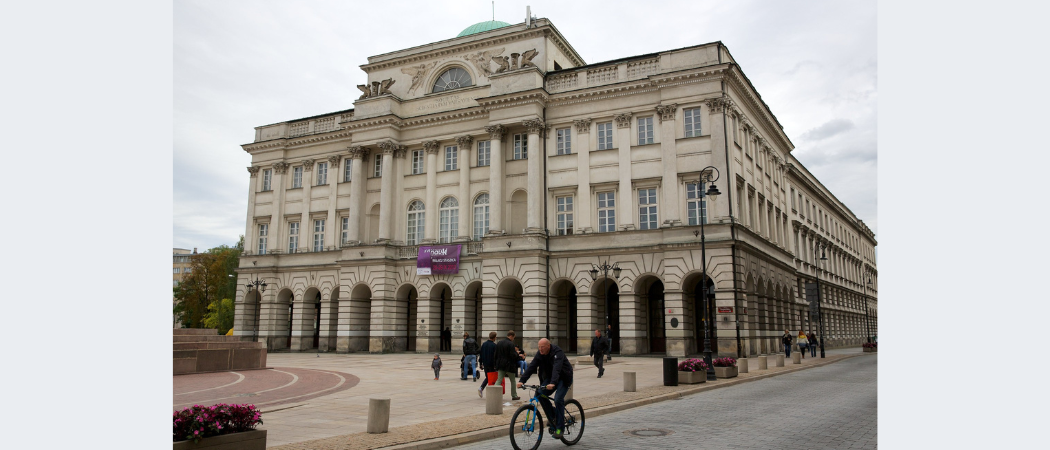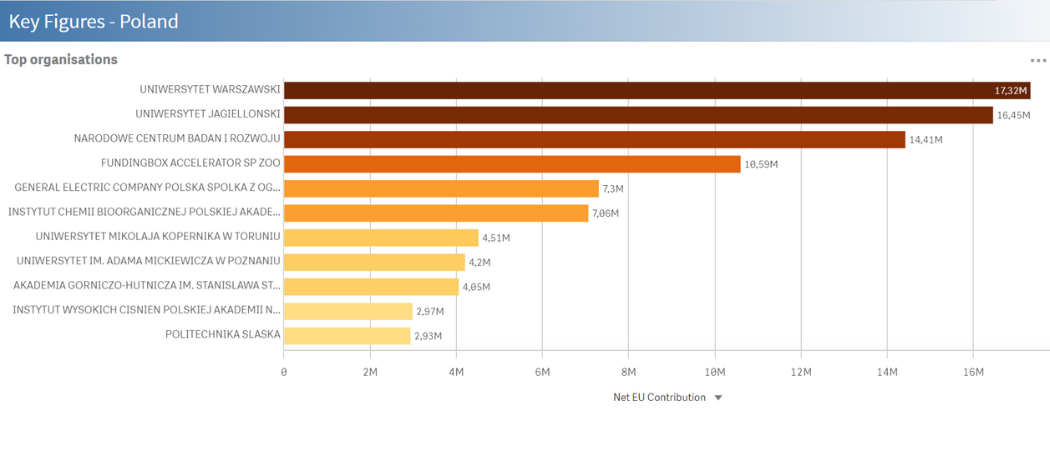The number of Polish participants in Horizon Europe has leapt up compared to the early years of the previous framework programme

Staszic Palace, the seat of the Polish Academy of Sciences. Photo: Victor Wong / Flickr
Poland’s National Centre for Research and Development (NCBR) recently highlighted the country’s improvement in winning funding from the EU’s Horizon Europe programme compared to its success during the previous programme, Horizon 2020.
Overall, there was an 88.64% increase in funding for Polish participants for the first 258 calls under Horizon Europe, compared to the same period under Horizon 2020.
One of the key factors behind this improvement is Polish participants submitting higher quality project proposals, according to NCBR.
Ewa Kocińska Lange, director of NCBR’s Brussels office, said that statistics like this could help propel Polish researchers and scientists to further success. “This is a positive message. People in Poland are sometimes a bit disappointed with being rejected and so are not motivated to try again. It’s a bit of a cultural thing,” she said.
“With Horizon funding, you have to try again. Some other countries always try. This might be a good incentive to encourage people in Poland to keep trying,” Kocińska Lange said.
She put the improvements down to the country gaining more experience in participating in Horizon framework programmes, its support system for scientists being more mature, a greater number of mentoring programmes on offer and the country’s representation in Brussels being more active.
A concrete example came earlier this year when two scientists, Andrzej Dziembowski and Daniel Gryko, became the country’s first ever winners of European Research Council advanced grants grants in the fields of life science and chemistry, respectively.
In terms of the main winners of Horizon Europe funding, the University of Warsaw and Jagiellonian University top the chart, followed by the NCBR. The three institutions have won a combined total of nearly €50 million in funding, data from the EU’s Horizon Dashboard shows.

Despite the positive signs, Kocińska Lange is far from complacent. “You cannot change things overnight, this is a process,” she said. “There is still a lot to do but when you look at recent years, starting with Horizon 2020, the progress is becoming more visible.
“We cannot open the champagne and celebrate yet, but it is something that gives us hope.”





 A unique international forum for public research organisations and companies to connect their external engagement with strategic interests around their R&D system.
A unique international forum for public research organisations and companies to connect their external engagement with strategic interests around their R&D system.